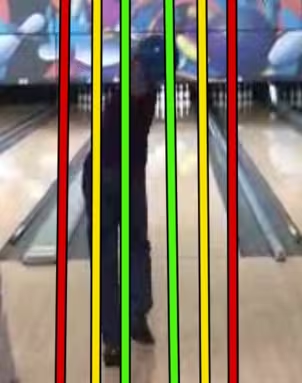Article Contents
- 1. Identify the swing direction issues
- 2. Check mobility
- 3. Identify technical corrections
- 3.1. Bowlers with swings behind their backs
- 3.2. Bowlers with swings that go too far from the body
- 4. Put in the work
- 5. Final thoughts
Note: This article is only available to Bowling This Month subscribers.
Every bowler is built differently, but an effective armswing shares common characteristics for everyone. In short, an effective armswing allows you to consistently hit your target and release the ball the same way every time. While there is a trend towards EJ Tackett-style swings, there is a limit to how much lateral movement a bowler should have in their swing. There’s also the question of what the best swing is for your game and body type.
This article will cover the topic of creating a straighter swing path. Note that I did not say “straight.” Most swings will not be perfectly straight, but swings that deviate too far from the desired path are very difficult to control or repeat.
With this in mind, let’s go through the four-step process that everyone working on their swing should follow:
- Identify the swing direction issues: Are you looping behind your back or swinging the ball too far away from your body? You can’t fix something if you aren’t aware of it.
- Check your mobility: Before addressing bowling technique issues, you must identify any physical limitations that underly poor technique.
- Identify technical corrections: This can be anything, including an issue with your ball start, your hand position, your grip, etc.
- Put in the work: Once you’ve identified the root causes, do the required drills and training to correct the issue.
Identify the swing direction issues
The big question to answer is how far out of line a swing can get while still being effective. The typical standard was always to align the ball with the head at the top of the backswing. If you look at most professional bowlers who aren’t named EJ Tackett, they generally have the ball behind the head or no more than half a ball width inside or outside the head.
The green lines represent a ball position that is behind the head, the yellow lines are the typical maximum allowed deviation, and the red lines usually indicate a swing that is out of line.
Pretty much every coach agrees that a swing that wraps behind the back is to be corrected. Where the modern game gets a bit contentious is with swings that go slightly away from the body. In Coach Joe Slowinski’s analysis…
Click Here to Read the Full Original Article at Bowling This Month…
